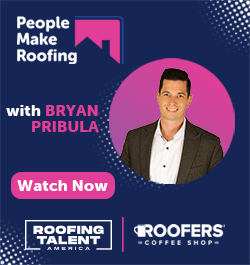What Influences Your Business Credit Score?

By Equipter.
Three factors that will boost your roofing credit score and lower rates.
The roofing business is a lot more complex than making sales and sweating your way through manual labor; running a roofing business also means providing employees with the right equipment and supplies to do each job well every time.
Enter financing.
From work trucks to equipment like the Equipter RB4000, financing is inevitable. Regardless if you are just starting out or looking to grow your business, overcoming a bad credit score will help you lower your interest rates.
Many factors come into play when calculating your personal credit score, but when measuring a business credit score, reporting bureaus hone in on three major factors.
What influences your roofing business’s credit score?
1 - Payment history
If you’ve been in business for a while, you’ve probably had to finance equipment or at least manage a business credit card. Just like with personal credit, late payments negatively affect your business or commercial credit score.
Your company’s relationships and repayment histories with suppliers and other lenders are also taken into account when calculating business credit. Be sure that you’re always making regular payments in order to maintain a good score and avoid being directed to collections.
Note: Lenders often view your personal credit score in addition to your business credit score as a way to determine your reliability.
2 - Legal filing history
Tax liens, bankruptcy claims and other ugly legal filings will damage your credit score and likely lead to higher interest rates when you’re ready to take out a loan. Maintaining a healthy, smooth-running business can help you avoid filing for bankruptcy and keep your business credit intact.
3 - Business Specs
Business specifics are also largely considered when calculating your commercial credit score. This can include how long you’ve been in business, the number of employees at the business, and even the type of business you run. The longer you’ve been maintaining healthy business relationships, the better your commercial credit score is likely to be.
Interpreting the numbers
Unlike personal credit scoring (300-850), business credit scales vary (0-100; 0-300). To further understand business credit scoring, note that there are three separate reporting bureaus that calculate different aspects of business credit scores. Different vendors and lenders often focus on scores provided by specific reporting bureaus, a topic Gerri Detweiler from Nav explores in his article, “Business Credit Scores & Reports.”
When reviewing an application for the Equipter RB4000, we focus on two factors: 1) how long a company has been in business, and 2) the applicant’s credit score. If the company has been in business for two years or longer and the applicant has a credit score above 700, the applicant is likely to qualify for Tier 1 interest rates—the best of the best. We also work with various financial institutions to help those with lower credit scores find the most reasonable interest rates for their budgets.
The information provided by Equipter is not to be taken for legal advice. Consult your financial institution or advisor for assistance in assessing your business credit score.
Learn more about Equipter in their RoofersCoffeeShop® Directory or visit www.equipter.com.
Original article source: Equipter























Comments
Leave a Reply
Have an account? Login to leave a comment!
Sign In